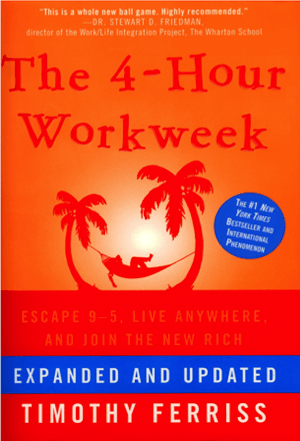A long time ago, I wrote a piece called “10 signs that your digital nomad guru or advisor is a crackpot” and published it on Medium. This piece which details digital nomad scams and how to avoid them owes a lot to the original, but it also contains quite a bit more.
Many digital nomads will never encounter a scam because they’re the smart folks who have an income before they leave home but sadly, there are growing numbers of vulnerable folks coaxed to places like Chiang Mai with the promise of an easy life making millions online without effort – this article is for those folks and for anyone thinking about handing large sums of money over to a stranger for an information product.

Table of Contents
16 Warning Signs That You’re Being Scammed By A Digital Nomad
There was a time when I figured that signs like these were obvious, but it appears that common sense is not only in short supply but, in fact, there is a strange psychological phenomenon at work.
We are programmed to believe other people by our biology. In fact, we’re so strongly programmed that it often overrides our common sense.
So, before you hand over large sums of money to a digital nomad – you might want to read this through as a kind of checklist to prevent you from doing something that will, in hindsight, feel a touch foolish.
Warning Sign One: They Think The Four-Hour Workweek Is Real

The Four-Hour Workweek is recommended endlessly by digital nomads and we can only assume that this is because they didn’t read it.
Tim Ferris’ book is a nice idea. It’s really a marketing text with a bit of “how to outsource your business” thrown in on top.
There are only two problems with it. The first is that it is badly out of date, the marketing tips are showing their age and while it’s an enjoyable enough read – it’s been well and truly surpassed as a guide to marketing.
The second is the idea that anybody outsources their entire business and lays on the beach while money racks up in their bank account.
I pointed out in my original article that Tim Ferris doesn’t work a four hour week. In fact, he’s a notorious workaholic who spends a lot of time driving his desk. He tries to pretend that work isn’t work when you’re having fun, but it is work. Work’s when you do stuff to get paid rather than do something more in tune with leisure.
He also picked the title of the book because it was the biggest untapped Google search that he could find. Then he forced his material to fit the title. This isn’t a big secret either – it says this in the Four-Hour Workweek.
The truth is that most people, when they start to make serious money, work more, not less. If your efforts equal your rewards, then when the cash starts pouring through the door – you tend to get serious about business.
That doesn’t mean people don’t outsource work, of course, they do. I outsource theme design, logo design, etc. because I suck at graphic design. What I haven’t done and will never be able to do is outsource the core of what I do, businesses without leadership run themselves into the ground.
A 4-hour workweek is a beautiful pipe dream but in all my years of travel, I’ve never met anyone living it. Though, I’ve met plenty of people who’ve made their money and then quit working entirely – which is probably the best end result that you can hope for.
So, when someone says earnestly; “The Four-hour Workweek will change your life!” they probably didn’t understand what they read – if you can’t understand that book, you can’t possibly add anything of value to someone else’s business.
Note: Someone got quite angry and wrote to me insisting that they’d done this. Sadly, they refused to supply so much as a shred of proof for their claims. So, I’m guessing it was just another loser trying to sell the myth.
Warning Sign Two: They Tell You Running A Business Is Free

If only. Look, it is absolutely possible to build up a business without much money in the bank. Millions of people do that every year.
What’s not possible is to build a business with no cash investment at all except for a very expensive course that you just bought from a digital nomad.
An Internet business requires hosting, domain names, e-mail, etc. An Amazon FBA business requires you pay for stock and stocking fees. And so on… there are no free lunches.
Smart people know that there’s an equation that rules the business world: time = money.
There are things you can do for your business to avoid spending money if you want to spend time on it. Sadly, you may have to spend a lot of time to save peanuts.
Money pays for laptops, electricity, travel, your home, etc. and all of these things are part of the cost of doing business as a digital nomad.
Trying to start a business with $0 in your home country would be incredibly hard (though I can think of a couple of things you could use to get started which would simply use household items – anyone with a bucket, a sponge and some soap can wash cars, for example) but trying to do it online and overseas with $0? It’s never going to happen.
Warning Sign Three: Their Income Doesn’t Derive From The Skills They Teach

Can you imagine learning to program from someone who doesn’t use a computer? Would you learn medicine from someone who hadn’t got a license to practice? No.
So, why on earth would you trust an internet digital nomad “guru” who doesn’t make money from the subject they teach?
Most internet gurus will provide you with some form of “income statement”, we’ll get on to these in the next point but the first thing you want to do is go through this and work out how much money they’re earning from what they teach.
Don’t let them fool you, if they teach dropshipping, only income from dropshipping sales counts – income from other activities like selling dropshipping courses or selling websites they own, does not. That’s not dropshipping income.
Warning Sign Four: Their Income Reports Make No Sense Whatsoever

People who brag about how much money they earn suck. There, I said it. It is a deeply unattractive trait and something that ought to start ringing alarm bells in your head.
When I wrote the first piece back in 2017, I had a guy write to me angrily about doubting people’s intentions over income statements. I then went to his website, where he had a very detailed income breakdown which appeared quite honest and showed how he made his $2,000-$3,000 every month with his partner.
The trouble with this? He was marketing and selling a course entitled, I kid you not, “How to earn $5,000 a month online”. I confess, I mocked the life out of him.
So, before you dive deep, look at the surface details – I don’t expect much from someone but if they want to teach me to make $5,000 a month, they ought to earn $5,000 a month, right?
If your digital nomad salesman has an income statement here are some things you ought to check on it:
- It has a named source of income. Going to be blunt about this – if someone hides this data, run away fast. They’ll tell you that there’s a need for secrecy in case you steal their big idea – in truth, this is pure garbage. There’s competition in every market; why would they fear a new starter when they have the experience and expertise? Real businesses have to file accounts to enable you to see how they make money, online businesses often don’t do this but if they can’t tell you how they get paid – move on.
- The income matches any claims they make. Like my $5,000 a month man, does this income report make any sense in light of what they are offering to teach you? One of the digital nomad world’s biggest weasels claimed to be making $100,000 a year dropshipping, yet his income statement showed that nearly $80,000 of that income was based on selling a website, dropshipping made him no money at all.
- Profits and losses should be recorded. Running a business entails costs as well as profits. For example, while I put together NomadTalk, I’ve bought a domain, paid for hosting, bought a theme, bought some plugins, paid for image compression and a couple of other bits and bobs. It hasn’t made any money (and I don’t expect it to for several months) which means for now – it’s made a loss. This is normal and how most businesses begin. Anyone claiming nothing but profits and showing no costs is either naïve or dishonest and either way they have nothing of value to teach you about running a business.
- An established history of profit. A single month’s income statement may be the most valueless thing in the world. Was it exceptional? Do they make $5 a month normally but had a lucky moment when someone spent $1 million on Amazon via their affiliate link and they made $7,000 on the back of it. If they want to talk about how much they earn, they need to show that it’s consistent.
- Income against time reporting. Great, they say they make $2,000 a month (a not unrealistic sum for anyone) but how much time does it take? I once met a guy earning $1,500 a month writing garbage for content mills, but he was working nearly 80 hours a week to do it. His business was simply unsustainable. What activities make up the business? How much time do they take to conduct? I am interested in $2,000 a month from say 5-10 hours a week – that’s the kind of business everyone who is starting out should want but not in $2,000 a month for 80 hours a week, that’s a terrible business.
- Some record of taxes. An accountant pointed this out. Real businesses pay taxes. If they don’t appear on the income statement – either they’re not paying, in which case trouble awaits, or they’re misleading you their would-be customer.
I’d still recommend avoiding people with income statements in any circumstances. The income statement is almost always designed to dupe people not to help them.
Warning Sign Five: Their Information Products Are Insanely Expensive

Years ago, I was a classroom trainer for a bespoke software company in the engineering sector. If you wanted to attend my training, it would have cost your company £1,000/day per person they wanted to send.
Was that good value? Probably not but we had one advantage when it came to this. Our software was absolutely unique and thus if you wanted to learn to use it, you had to pay.
I am not embarrassed to admit that clients loved this training, and nobody ever complained about the cost because it was filed under the “project cost”.
So, this makes me something of a hypocrite when I tell you – information products online are usually grossly overpriced.
Before we all moved online the “information product” was an audio cassette, a VHS or Betamax video or even a good old-fashioned book.
The modern online information product is exactly the same usually – it consists of some audio, video and written stuff in any or all combinations.
This is good because it lets you suss out the potential value of digital nomad offerings. Before you buy an information product – head over to Amazon and find out what the definitive book on the subject will cost you. I guarantee it won’t be more than $99 and usually, it will be a lot less.
Training courses? They’re ten a penny now thanks to Udemy and its horror show business model of getting trainers to work for next to nothing. You can buy a 95 hour “learn to Python” course in a Udemy sale for $9.99 and if there’s not a sale on when you visit their site – don’t buy anything, there will be a sale within 2 weeks. That’s their methodology.
Now, back in 2017, I said, “there’s no information product out there that’s worth $1,000 or more.” I’m going to stand by that despite some fairly angry course creators insisting otherwise.
Why? Because digital nomads aren’t looking for obscure bits of information to transform their business. They’re looking for off-the-shelf courses which are an absolute commodity and thanks to a highly competitive market for commodity products – you don’t need to pay much for information.
All the skills digital nomads want to learn: blogging, coding, graphic design, writing, Amazon FBA, etc. can be learned cheaply and effectively.
Now, if you’re paying for personal tuition, personal coaching or even bespoke training development – that’s a whole different ballgame but info products? Sorry, if you’re paying much more than $100 for them on their own, you’re being done.
Warning Sign Six: The Forum Of Support

Want to save money on supporting your “students”? It’s easy. Set up a forum on your website and let the daft buggers support themselves.
This is very cheap (you can install a forum on WordPress for almost zero money) and it will save you a ton of time. The trouble is, that the people you ought to be learning skills from? They’re not people who are just starting out in a field.
Sometimes, your fellows will have good intentions but still be dead wrong when they volunteer assistance. Other times, they’re going to remember that you’re their competitor and mislead you for the fun of it. You won’t be able to tell.
That doesn’t mean that I think forums are completely worthless, but it does mean I don’t think you ought to pay much of a premium to hang out with people learning a skill. Reddit has plenty of free forums if you desperately need a virtual community while you learn and they’re as good as anything I’ve ever seen from a “digital nomad guru” charging thousands for the privilege of forum access.
Warning Sign Seven: There’s A Guru Under Every Stone

Want to know when something online no longer makes any money? It’s easy when you type that idea into Google such as “drop shipping” and almost every hit on the front page is full of people trying to teach it to you – that’s when it’s stopped making money.
If it made money, they’d be doing that thing you Googled. If it doesn’t make money now but it once did, they can sell the same crappy course they once bought to suckers and act like it still makes money.
The only thing you can learn from these people is how not to run a business and sadly, you will only learn that from bitter experience of them.
Warning Sign Eight: Shhh… It’s A Secret

No, no it isn’t. Real work doesn’t involve secrets unless your job is espionage. There are no secrets to running a WordPress website, or doing Amazon FBA, or using Mechanical Turk to grind out the most depressing living in digital nomad history.
This isn’t how the world works. Businesses differentiate themselves through branding, personality, etc. but not in the nuts and bolts of the operation. One of the great things about the Internet is that if you want to work online: there are no secrets as to how you go about it.
When someone tries to tell you secrets, they’re not being honest with you. Don’t buy a thing from them.
Warning Sign Nine: The Paywall Is Always There

This is, happily, not as much of a thing as it was back in 2017. Having said that, it hasn’t gone away but what has happened is that the paywall has been disguised in the site’s annoying and persistent e-mail marketing while thin but free content is found all over their website.
One of the big advantages of books as information products is that you can look inside them to see if they’re worth buying. This isn’t true of most online information products and while it’s not a reason to avoid them entirely, it is a good reason to be skeptical of them.
Anybody who keeps pushing you to buy without even a taste of the good stuff is probably not your friend.
Warning Sign Ten: The Digital Nomad LifestyleTM

I am a member of a digital nomad blogging group online. It has an interesting difference from most digital nomad groups – all the members are actually professional bloggers. That is they all make their money online and the majority of it comes from blogging.
Recently, the admin ran a survey asking who worked from the beach and an additional question asking who had ever worked from a beach. Of several hundred responses, only a small handful of people had ever attempted working from the beach and no-one was actually working on the beach when the survey went out.
Do you want to know why? It’s because working on a beach isn’t something people do. Your equipment would be ruined by sand and sea air. The glare of the sun would make reading from screens challenging and most of all – hammocks, sun loungers and towels laying in the sand are not comfortable places to work.
Sure, every single digital nomad ever (even me and I hate beaches) has found themselves at some point working from a café with a view of a beach. But nobody actually works on beaches.
The difference between these two things is found in what I call the “Digital Nomad LifestyleTM” which is a form of lifestyle porn – business training from people who sell lifestyle porn is always garbage. Always.
We don’t work on beaches because they suck for working on. This should be of no surprise if you plug your brain in for a minute.
Where do we work from?
- Co-working spaces. Or as I like to think of them, “offices that people who quit working in an office to be free, pay to work in, because that’s freedom for you”. And yes, co-working spaces are offices and yes, you pay to use them. Though we don’t.
- Apartments and hotels. People who work online usually work from home. In that digital nomad survey where no-one worked on the beach, about 90% of people worked from home. It’s without a doubt the most convenient way to work.
- Coffee shops, restaurants, and bars. Again, this ought not to be a surprise and these places look the same the world over.
Lifestyle porn tries to portray digital nomad life as it isn’t. The joy of digital nomad life is not so much in our work time but our freedom to see the world when we’ve finished work.
Warning Sign Eleven: Fake Signs Of Success

A certain famous Chiang Mai digital nomad guru was the master of fake signs of success. My favorite was the endless photos of him stood outside of hotels that he clearly couldn’t afford and worse, was afraid to sneak into the lobby and take a selfie in case they spotted him for a fraud.
Signs of conspicuous wealth in someone’s marketing are usually screaming signs that the person is lying. People living in Chiang Mai trying to make a living dropshipping aren’t living it up in the Shangri-La drinking champagne because they cannot afford to.
If they could afford to, they wouldn’t be in Chiang Mai for years and years and years. It’s not the Chiang Mai is an awful place but it’s not that great and there’s a big old world out there that a wealthier digital nomad would want to get to grips with.
Nomads who are posing sat on supercars or in front of expensive hotels are simply using props to mislead you.
P.S. A tip for all you would-be fakers – in Asia you can enter any 5-star hotel without any need to be dressed smartly and you can take a selfie in the lobby or any public area. If you buy a cup of coffee and ask nicely, you can probably get someone to show you a room or some top-notch facilities to take more selfies in too.
Warning Sign Twelve: They’ve No Track Record

Why on earth would buy a course from someone who has only been doing what they claim to be doing for a few weeks? What are the odds that they’ve made their millions or even hundreds in that time?
Yet, that’s exactly what you find over and over again online. “This is my first blog, but I am going to teach you how to blog.”
You can spot these people very easily, every article they have is a minor tweak of somebody else’s article. Have a quick Google for their topic headings and while it is true, that this article you are reading now is a minor tweak of another article – it is, at least, my own article that I am plagiarizing.
Warning Sign Thirteen: The Price Tag Ends In $7

Really, if you see a course priced at $997, $497, or even $97 or $37, run. It is the ultimate sign of someone who hasn’t read a decent marketing text in years. If they don’t know how to sell, how likely is it that you will learn to sell from them? Not at all, right?
It’s such a cliché that digital nomad forums mock this stuff outright and if they know it’s a joke, then everyone ought to. Run away!
Warning Sign Fourteen: Nobody Gets Rich Quick By Design

It is not impossible, in this life, to get rich in an instant. Think of all those people who bought Bitcoin for a buck and then sold out at $20,000.
The truth is this: there weren’t very many people who did that. Most people who bought Bitcoin at a buck sold them at a minimal profit. Many others held on to theirs as the market collapsed.
Yes, a few very lucky people may have called it right but most people either made a little money or lost more than a little in the great crypto-rush of 2018.
It is only luck that makes people rich in a few minutes for no work.
The rest of us have to slave away for a lifetime and may never get rich – though everyone, at this moment in time, from the West ought to be able to make a six-figure income if they want it.
However, that won’t come overnight. In fact, I’d estimate that most people will need 2-3 years to get to $100,000 a year, some will need longer still. And they’ll have to work for it all the time, not for 4 hours today and then wait for the money to pour in in 3 years.
Anyone selling you products that imply no work in and lots of money out in any timescale is a fraud. Anyone selling you products that say “get rich quick” has always been a fraud and the only thing telling you otherwise is your own sense of greed. Snap out of it.
Warning Sign Fifteen: They Think Working For Free Makes Sense

Let’s be clear about this.
When you work for free on your own business – this is an investment. Spend an hour or two writing an article like this one and publish it on your website? That’s an investment.
Give it away to some third rate business with no major internet presence? That’s not an investment that’s working for free.
Exposure is generally not worth having. Polar explorers die of it.
I have lost track of the number of opportunities offered to me over the years where I could work for free and then I would supposedly benefit at a later date due to exposure. I’ve turned all but one of those opportunities down and should have turned the one I accepted down too.
Spend your time on your business not on other people’s unless they pay you in cold hard cash for doing so. (Or something as good as cash – like computer equipment or flights to Hawaii).
Warning Sign Sixteen: They Emphasize Working Cheap

Don’t do it. It’s not as bad as working for free. But if you write 1,500 words for $10 – that’s what you’re worth to the client. They’re never going to pay you the $150 it should be worth; because you’re the idiot that set the price at $10.
You are better off spending effort working harder to find clients who will pay market rates than working incredibly hard for clients who won’t pay anything like them.
Seriously. Say no to working like a slave. If you’re not earning at least 3 times the minimum wage in your home country as a freelancer – you’re selling yourself too cheap or your skillset sucks and you need to learn new skills.
Conclusion

The only person that can stop you from getting ripped off by a digital nomad scammer is you. You don’t need to be a rocket scientist to see nonsense for what it is. You do need to be skeptical, even a little cynical, the moment somebody asks you to give them $1,000, they stop being your friend and start being a salesperson.
Don’t get suckered in. Use your head. You can make it as a digital nomad. You can have a great life. But there are no shortcuts. If anyone ever discovers a shortcut, they don’t sell it online to other people, they exploit the heck out of it and scale it, instead because that’s way more profitable.
So, choose your information products and training with care. Do it with the understanding that it will take hard work and quite a bit of time to get where you want. That’s OK, it’ll be worth the wait.
